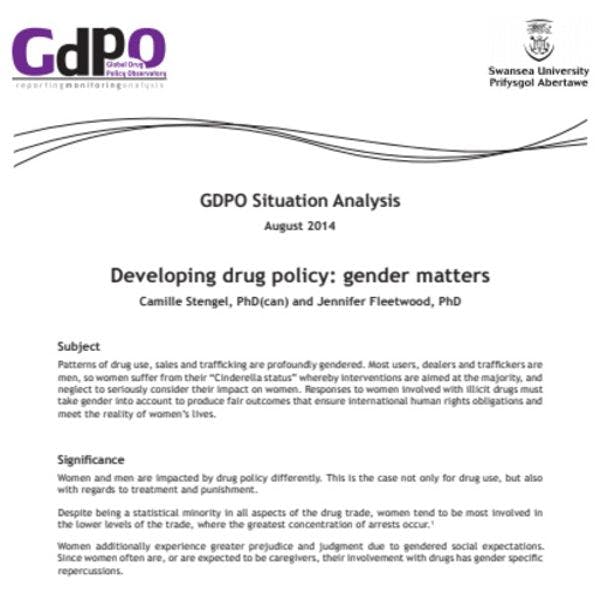Développer des politiques en matière de drogues: la question des sexes
Les réponses à l’implication des femmes dans le marché des drogues devraient prendre en compte la dimension des sexes, de manière à produire des résultats justes, pour assurer que ces réponses soient en conformité avec les obligations en termes de droits humains et qu’elles reflètent la réalité de la vie des femmes. Pour en savoir plus, en anglais, veuillez lire les informations ci-dessous.
Abonnez-vous à l'Alerte mensuelle de l'IDPC pour recevoir des informations relatives à la politique des drogues.
Patterns of drug use, sales and trafficking are profoundly gendered. Most users, dealers and traffickers are men, so women suffer from their "Cinderella status" whereby interventions are aimed at the majority, and neglect to seriously consider their impact on women. Responses to women involved with illicit drugs must take gender into account to produce fair outcomes that ensure international human rights obligations and meet the reality of women's lives.
Women and men are impacted by drug policy differently. This is the case not only for drug use, but also with regards to treatment and punishment.
Despite being a statistical minority in all aspects of the drug trade, women tend to be most involved in the lower levels of the trade, where the greatest concentration of arrests occur.
Women additionally experience greater prejudice and judgment due to gendered social expectations. Since women often are, or are expected to be caregivers, their involvement with drugs has gender specific repercussions.
Keep up-to-date with drug policy developments by subscribing to the IDPC Monthly Alert.
Téléchargements
Sujets
Régions
Profils associés
- Global Drug Policy Observatory (GDPO)
